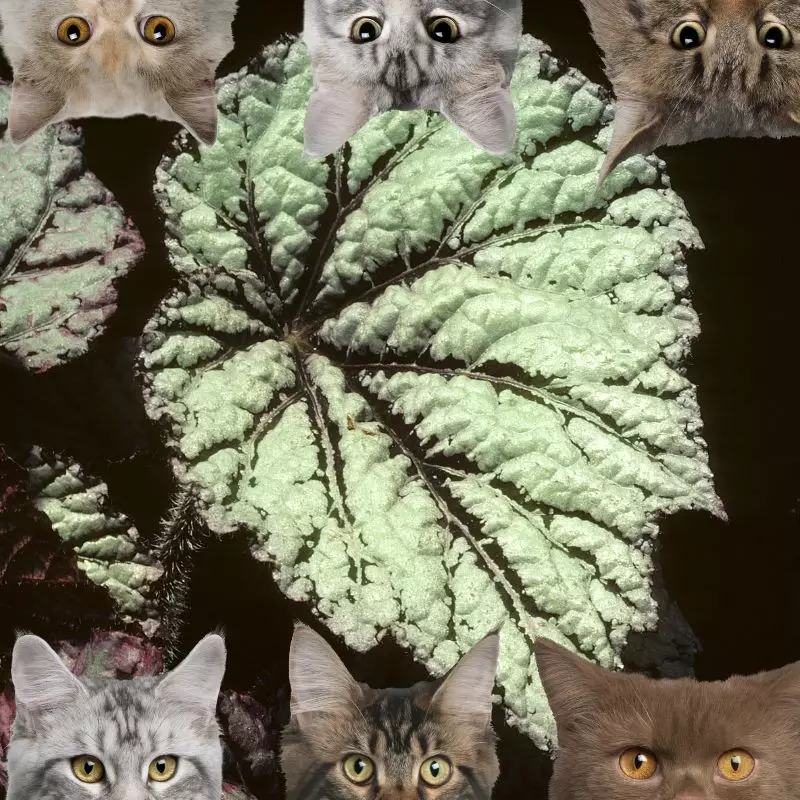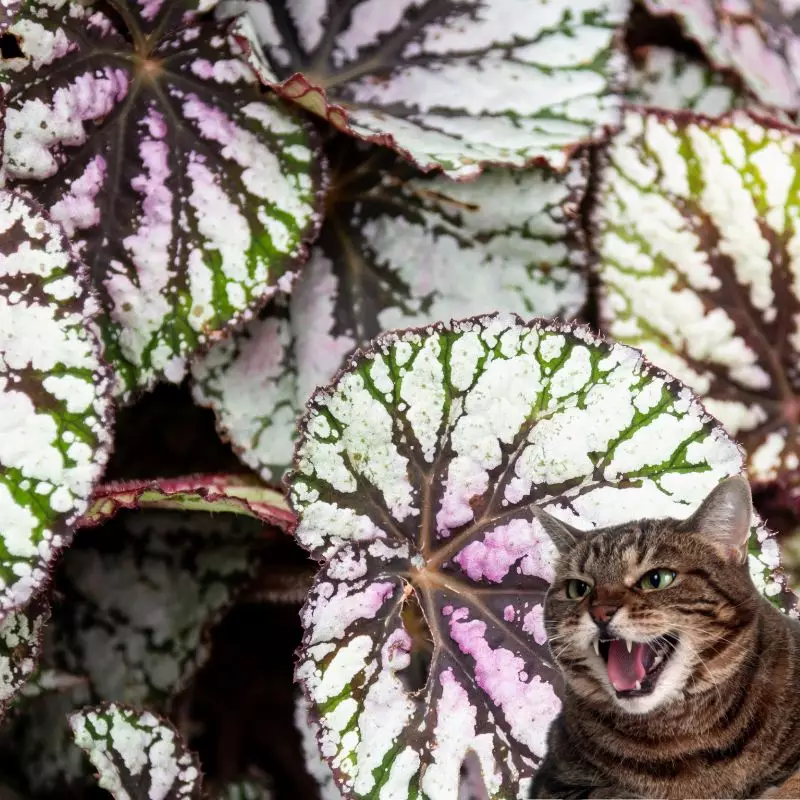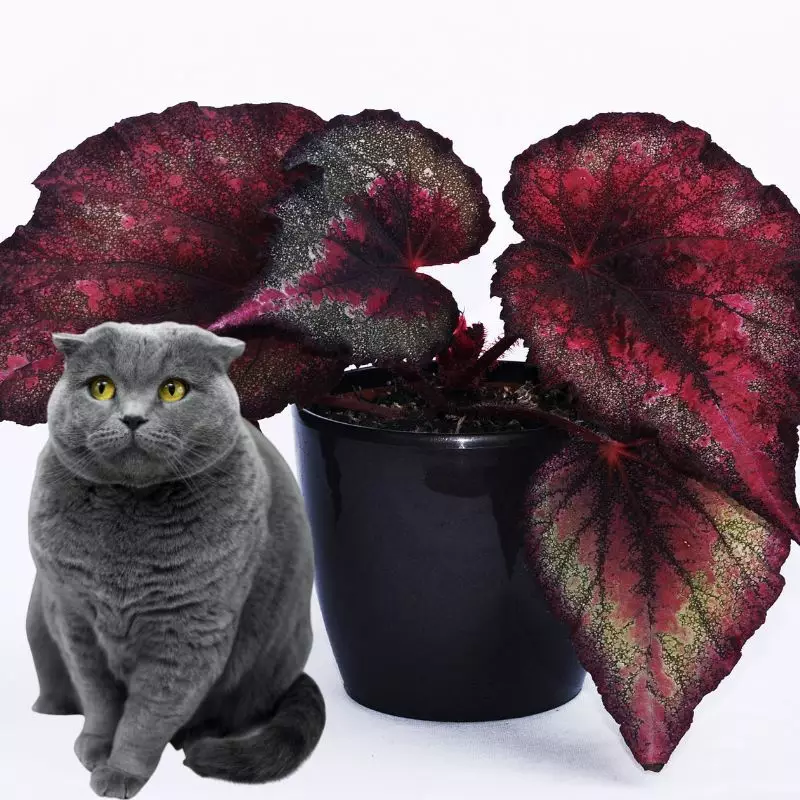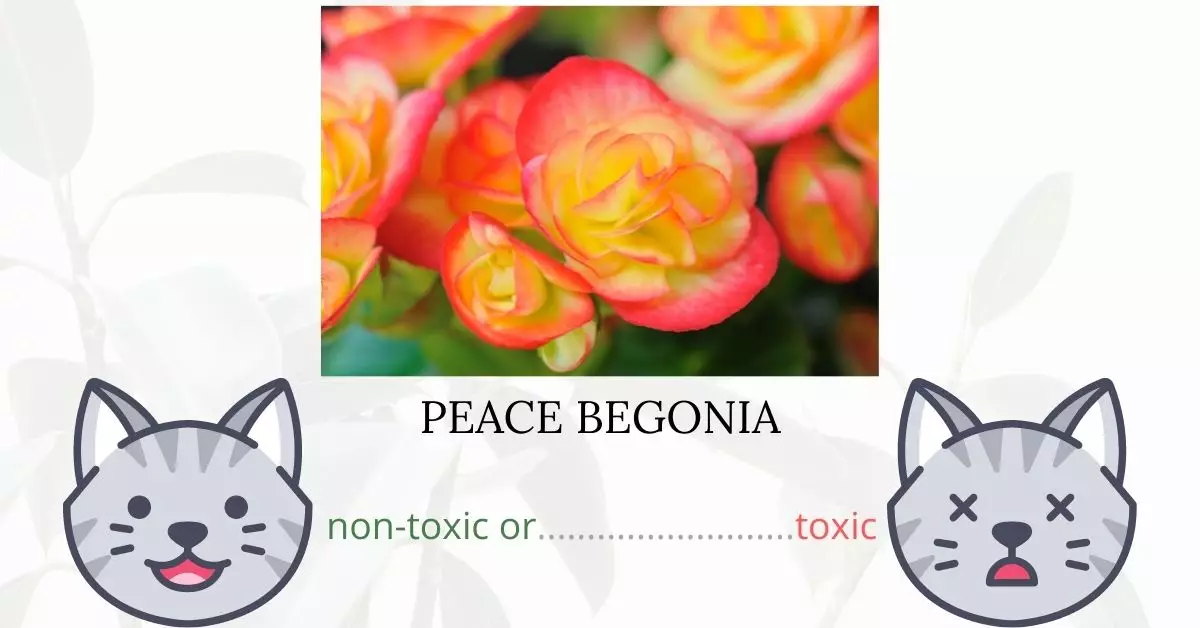Yes, Peace Begonia (also known as Rex Begonia) is toxic to cats.
Written in collaboration with a team of experienced DVMs (doctors of veterinary medicine), this article aims to provide accurate and up-to-date information on the potential risks associated with various plants and their effects on cats, with an emphasis on Peace Begonia in this instance. Our research also incorporates findings from high-authority websites such as the ASPCA and PetMD to ensure comprehensive coverage on the subject.
Peace Begonias contain a chemical called calcium oxalate in high quantities. When consumed, these oxalate crystals can attach to various tissues, causing discomfort. They can also break down into ‘oxalic acid,’ a potent irritant. To combat the irritation and potential damage to the digestive tract, a cat might display symptoms like vomiting or increased salivation.
The toxicity of Peace Begonia is especially hazardous to cats and other small mammals, with the plant’s stems, leaves, and flowers being the primary sources. Direct contact can cause skin reactions like itching, redness, and swelling. If ingested, symptoms may include nausea, vomiting, diarrhea, sore throat, and difficulty breathing.
Clinical Signs of Peace Begonia Poisoning in Cats

When a cat has had contact with, smelled, or ingested a Peace Begonia plant, the chemical compounds within the plant can induce a variety of clinical signs. Though rarely fatal, these symptoms can cause significant distress to the animal.
- Excessive Drooling: The ingestion of Peace Begonia causes irritation to the mouth and digestive tract, prompting the cat’s body to produce more saliva in an attempt to dilute the irritant and soothe the affected areas.
- Oral Sores and Redness around the Mouth: The oxalate crystals in the plant cause direct irritation to the oral tissues, leading to the formation of painful sores and a reddening of the mouth area.
- Swelling of the Mouth and Tongue: The irritation from the oxalic acid and oxalate crystals can cause inflammatory reactions, resulting in swelling in and around the mouth and tongue.
- Vomiting: The body tries to rid itself of the ingested toxins through vomiting, a common reaction to the ingestion of poisonous substances.
- Dehydration: Frequent vomiting and the possible reluctance to drink due to oral discomfort can lead to dehydration, a serious condition requiring prompt attention.
- Inability to Swallow: The swelling and irritation in the mouth and throat can impede normal swallowing, making it difficult for the cat to ingest food or water.
- Loss of Appetite: The overall discomfort, pain in the mouth, and inability to swallow can result in a loss of appetite, with the cat refusing to eat.
These clinical signs require immediate veterinary attention to alleviate the discomfort and ensure no long-term damage occurs. Treatment often involves supportive care such as fluids and pain management, and in severe cases, hospitalization may be necessary.
First Aid and Treatment of Peace Begonia Poisoning in Cats

The majority of cases of begonia poisoning are minor. Symptoms normally subside within 48 hours. The doctor may offer a prescription diet because it is easier on the cat’s stomach. It can also help remove any oxalate crystals that have remained in the digestive tract of the cat.
Anti-inflammatories may be used to minimize throat swelling and maintain the airway clean in the event of swelling. To maintain the stomach lining intact, further medicines may be required. The vet may also recommend fluid therapy depending on the cat’s condition.
Recovery from Peace Begonia Poisoning in Cats

A severe case of begonia poisoning usually has a quick recovery time, with most cases being resolved in two weeks or less. Follow-up appointments are not required in the vast majority of cases.
However, if the esophagus has been severely damaged, the veterinarian may decide to insert a feeding tube temporarily. This will prevent the cat from straining injured digestive tract tissues by swallowing, allowing them to heal on a liquid diet.
Prevention of Peace Begonia Poisoning in Cats
Begonias are commonly found in most gardens and cats have direct access to them. Avoid growing this plant in your yards. Restrict your cat’s outdoor activities to lessen the risk of exposure to peace begonias or other toxic plants.
If you love plants but have cats at home, check out these lists:





